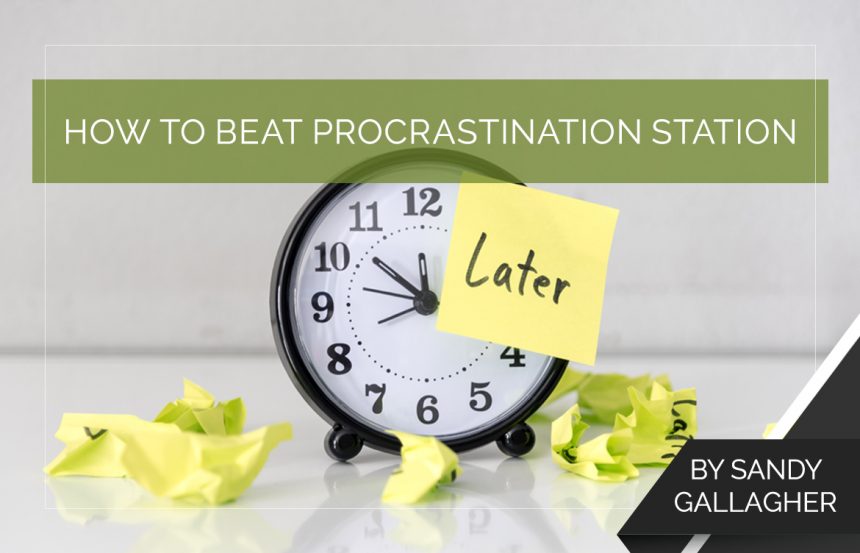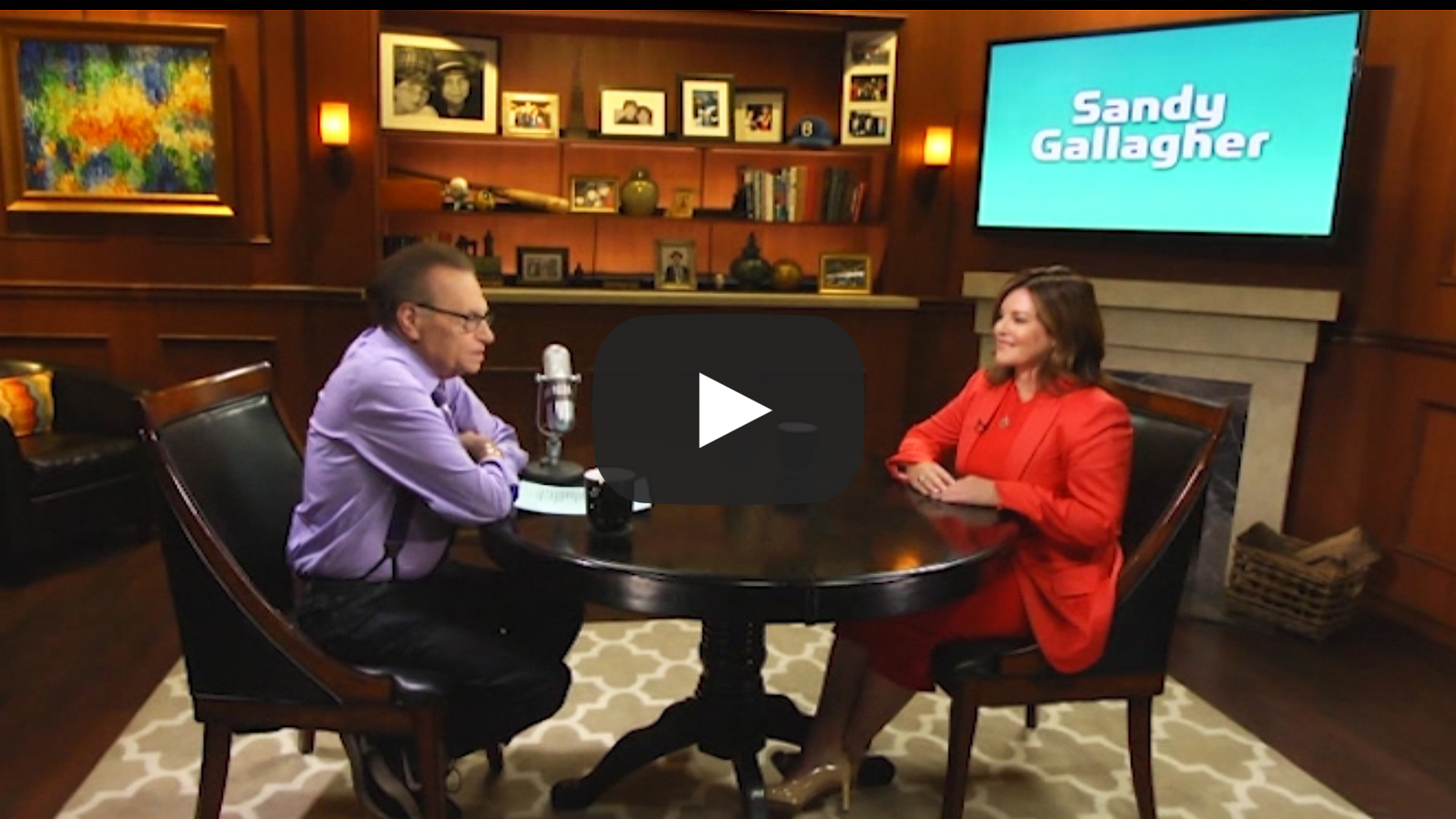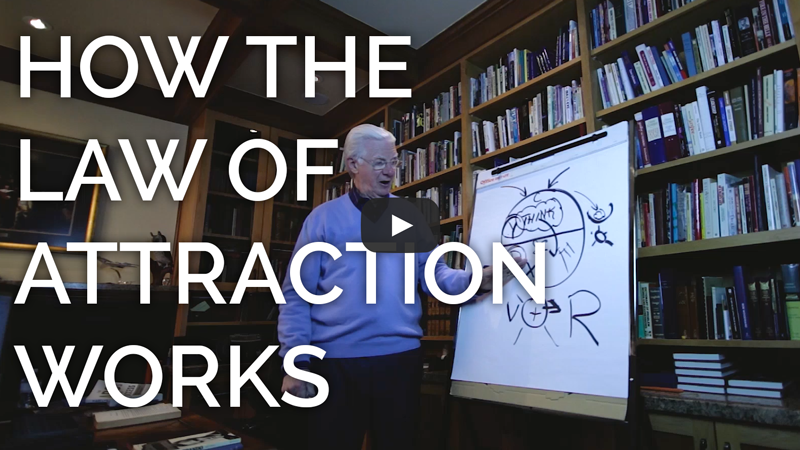
[su_spacer size=”30″]
What’s one of the greatest deterrents to success?
It’s something that stops countless people from enjoying a rich and abundant life because they delay or postpone acting on their priorities.
Of course, I’m talking about procrastination.
In nearly every seminar, someone asks Bob or me how to overcome procrastination. They say they have important things to do, but they just aren’t doing them. And they can’t figure out what to do about it.
The truth is, practically everyone procrastinates at some point.
It’s so common that Napoleon Hill wrote an entire chapter about the solution to procrastination in Think and Grow Rich.
However, before I share the solution with you, let’s take a minute to identify how procrastination shows up in your life.
What are your symptoms?
The first step in determining how procrastination affects you is to look at what you might be doing to delay or avoid doing something.
Which of the following symptoms of procrastination do you have?
• You often tell yourself there are other things you should do first.
• You tell yourself you’ll do it after you get everything organized.
• You are easily distracted by other things in your life.
• You’re often a day or two (or more) late in completing tasks or projects.
• An item remains on your “list” for days or weeks.
• You wait for the mood to strike or the “right” time to get started.
• You claim you work best when “your back is against the wall.”
(There are many more. Feel free to add your procrastination symptoms in the comments below.)
But what’s causing it?
When people ask Bob and me about procrastination, they refer to putting off working on their goals.
So, the question is, why would people procrastinate on a goal they have set for themselves?
Well, it’s not that they don’t want it. It’s that they haven’t decided to do what it takes to be, do, or have it.
Here’s some of what Hill said about making decisions in Think and Grow Rich:
“Those who reach decisions promptly definitely know what they want, and they generally get it. The leaders in every walk of life decide quickly and firmly.
“The world has a habit of making room for the man or woman whose words and actions show that they know where they’re going. Indecision is a habit which usually begins in youth.”
So, while the symptoms listed above are examples of the types of excuses you might use to justify your procrastination, they are not the cause…
Indecision causes procrastination.
Below are five common reasons people struggle to make firm decisions. Which ones resonate with you:
1. Making decisions is foreign to you because your parents did it for you when you were young.
2. You lack the courage to follow through on your decisions.
3. Others easily influence you, so you have little or no firm desires of your own.
4. You take a long time to reach decisions, and you change them quickly.
5. You don’t have a strong desire to see your goals become a physical reality.
If, on the other hand, you have made a committed decision to be, do, or have something, you are likely to persist in reaching the goal as quickly as possible. Without a committed decision, procrastination is likely to creep in.
In a minute, I’ll share four powerful questions we recommend using to see if you want something enough to make a committed decision to get it.
But first, here are five things you can do to overcome procrastination when you’re taking on mundane but necessary tasks—things that are not tied to a significant goal—that are sitting on your to-do list.
Five habits to help you get things done
Procrastination usually involves ignoring or avoiding an unpleasant task in favor of something that is more enjoyable or easier.
But giving in to this impulse has consequences. Even minor episodes of procrastination can make you feel guilty or ashamed. And over the long haul, procrastinating makes you less productive and prevents you from achieving your goals.
Procrastination is a habit, and the only way to get rid of a bad habit is to replace it with a good one.
Here are five habits you can develop to overcome procrastination on your daily to-do list. I recommend using as many of them as possible to give yourself the best possible chance of succeeding.
1. Commit to important tasks. Focus on doing, not avoiding. Write down the most critical tasks you need to complete each day and specify a time for doing each one. This will help you to tackle your work efficiently and become far more productive.
2. Rephrase your internal dialog. Replace the phrases “need to” and “have to” with “choose to” or “get to.”
Saying the first two phrases implies that you have no choice in what you do. This can make you feel disempowered and unmotivated to take on large, important tasks.
However, saying “I choose to” or “I get to” implies that you want to do the project, and it makes you feel more in control of your life.
3. Minimize distractions. Turn off your email and social media and avoid sitting anywhere near a television while you work.
4. Make it look smaller. Break a big task down into monthly, weekly, daily, and hourly subtasks to make the task or project appear more straightforward.
5. Focus on the long game. If you’re procrastinating because you find a task unpleasant, identify the long-term benefits of completing it. For instance, could it affect your annual performance review, health, or the value of your home?
For some people, understanding the consequences of avoiding or delaying something makes the task more enjoyable. If that sounds like you, identify the unpleasant effects of avoiding the task. Ask yourself what will happen if you don’t complete it? How might it affect your personal, team, or organizational goals?
There is no magic pill that will put an end to procrastination forever. But these tips will help you take concrete steps toward achieving more and feeling a lot better about yourself.
When you decide that you will move forward no matter what, you’re guaranteed to enjoy much more of the good things that life has to offer.
Bob’s four-point process
for making a committed decision
Now, when considering pursuing a significant goal that will require a lot of effort and possibly a substantial financial investment, Bob uses four questions to help him make a decision.
I love these questions and recommend you begin using them whenever you are about to make an important decision:
1. DO I WANT TO be, do, or have this?
2. Will being, doing, or having this MOVE ME IN THE DIRECTION OF MY GOAL?
3. Is being, doing, or having this IN HARMONY WITH GOD’S LAWS OR THE LAWS OF THE UNIVERSE?
4. Will being, doing, or having this VIOLATE THE RIGHTS OF OTHERS?
If the answer to the first three questions is YES, and the answer to the last question is NO, make the committed decision and then get—and keep—moving!
To more and better,
Sandy Gallagher

[Tweet “How to Beat Procrastination Station: https://bit.ly/3xKS7lO #bobproctor”]
[wpdevart_facebook_comment curent_url="www.pgistaff.org/49977/how-to-beat-procrastination-station" order_type="social" title_text=" " title_text_color="#000000" title_text_font_size="22" title_text_font_famely="Arial" title_text_position="left" width="100%" bg_color="#FFFFFF" animation_effect="none" count_of_comments="10" ]
" title_text_color="#000000" title_text_font_size="22" title_text_font_famely="Arial" title_text_position="left" width="100%" bg_color="#FFFFFF" animation_effect="none" count_of_comments="10" ]







